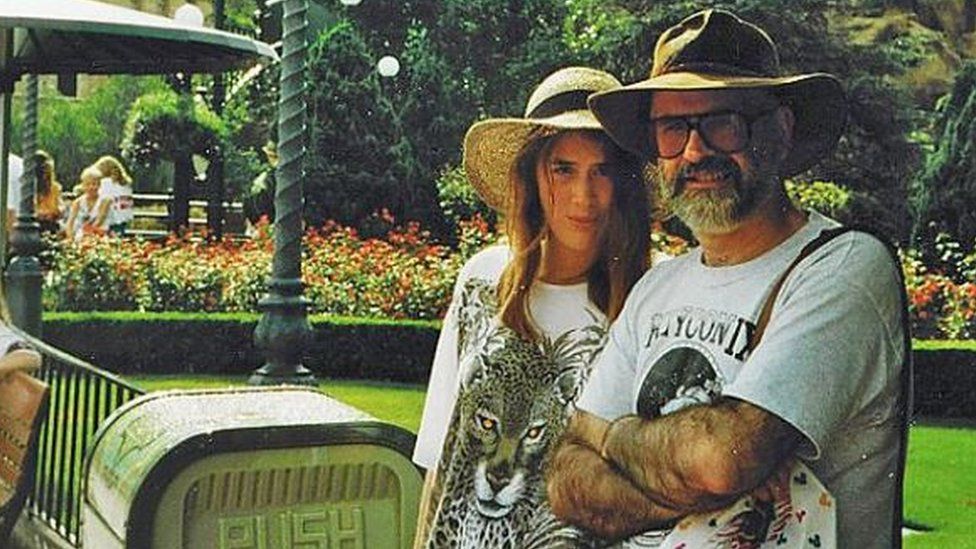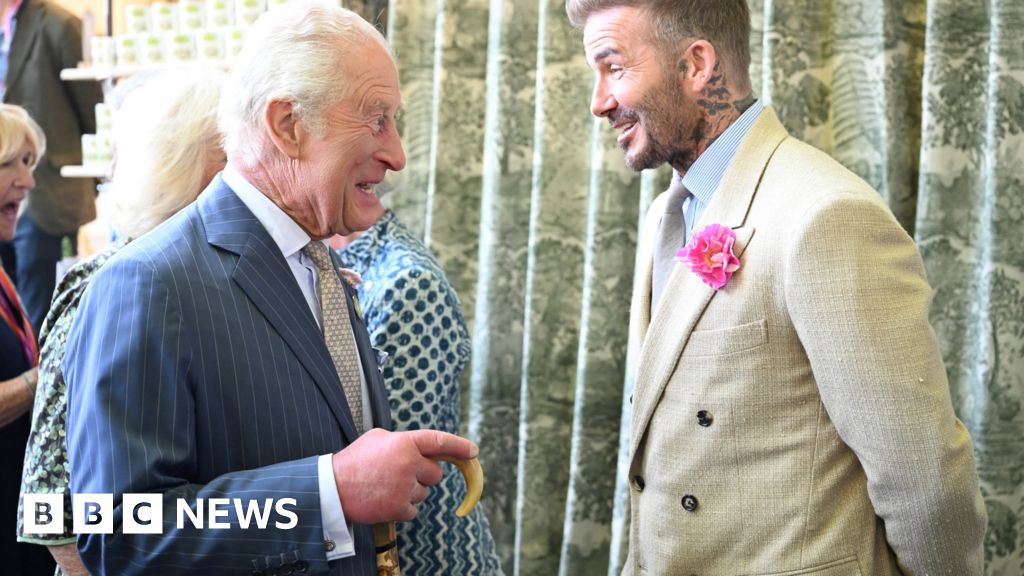ARTICLE AD BOX
 Image source, The estate of Sir Terry Pratchett’
Image source, The estate of Sir Terry Pratchett’
Rhianna Pratchett, pictured with her late father Terry, says her fascination with the fantastical began in childhood
Rhianna Pratchett grew up being told fantastical stories by her father, the late fantasy author Sir Terry Pratchett, and being taken to sci-fi and fantasy conventions around the world.
So it is perhaps unsurprising that she became a fantasy writer herself and developed a life-long fascination with mythical creatures.
She has recently been on a journey around the British isles in search of tales of these characters of folklore, myth and legend, from dragons to selkies and hobs to ominous black dogs.
In Wales she discovered a mermaid who cursed the town of Conwy and a star-gazing giant who shaped a mountain in Eryri, also known as Snowdonia.
"These tales don't just exist to thrill us, they tell us about who we are," she tells listeners on her new 10-part Radio 4 podcast series, Mythical Creatures.
Pratchett said her childhood in rural Somerset was full of tales of the other-worldly and unexpected.
Image source, Alamy
Image caption,Rhianna with her late father Terry Pratchett at home in 1992
"Even before creatures are introduced, I grew up in quite a magical environment," said the author, journalist and video game writer, best known for her work on the Mirror's Edge, Tomb Raider and Overlord series of games.
"In a little pink cottage with goats in the front garden and chickens and ducks in the back.
"We grew vegetables in the medieval graveyard. We had bees. I used to spin wool and milk the goats, collect honey and things like that and so it's already magical."
She said the dramatic countryside helped fuel her imagination.
"I always used to imagine that the lady who lived in the valley with lots of cats must be a witch," she said.
"My parents told me that another older gentleman that lived in the valley with his donkey was a giant killer.
"You kind of let your imagination run wild when you're a kid."
Image source, Getty Images
Image caption,In European folklore, mermaids have magical and prophetic powers
Pratchett's earliest introduction to mermaids was "probably Darryl Hannah in Splash", a 1984 romantic fantasy comedy where Tom Hanks plays a man who encounters a mermaid as a boy - and then goes on to meet her again 20 years later and fall in love.
"She fixed in my mind a love of mermaids," said Pratchett.
"I remember my poor parents trying to find me a mermaid tail in the midst of rural Somerset when I was about eight, and of course you couldn't in those days."
Rhianna Pratchett visited Conwy to hear how the town was cursed by a mermaid
For the Radio 4 series, she visited the market town of Conwy in north Wales, where she discovers a far darker mermaid story - that of the mermaid's curse.
The story goes that some fishermen caught a mermaid in the Conwy estuary and paraded her through the town.
As she started to suffocate, she cursed the people and buildings of Conwy - both Conwy Town Hall and a library later burned down.
The legend goes that on both occasions, the mermaid's laughter could be heard through the flames.
"Poor mermaids, in tales they're always being kidnapped or dragged somewhere or shot - they're treated really terribly, they're not usually happy stories," said Pratchett.
"There's usually curses involved and to be honest, I don't blame them."
Image source, Getty Images
Image caption,Cadair Idris is Welsh for "the chair of Idris"
She also visits Cadair Idris, a mountain in Eryri National Park, also known as Snowdonia, in search of the story of a very gentle giant.
Pratchett said when she was a child her paternal grandparents would tell her a story about local giants when she visited them in Clyro in Powys.
"They were surrounded by bluffs and mountains and things like that and my gran always used to say the mountains were sleeping giants," she said.
Cadair Idris's giant, named Idris, is said to have been a poet, astronomer and philosopher who once used the mountain as his throne.
It is said that the huge boulders at the bottom of the mountain were stones he shook out of his shoe.
Legend has it that those who sleep on the mountain will awake as either a madman or a poet, or else never wake again.
"He's sort of more of a gentle giant," said Pratchett.
"He's not a giant eating people or climbing down beanstalks but a giant just watching the stars and there's something rather lovely about that, I think.
"This story connects us to the landscape and it makes the landscape more meaningful".
Image source, Getty Images
Image caption,Rhianna Pratchett is an author, journalist and video game writer, best known for her work on the Mirror's Edge, Tomb Raider and Overlord series of games
She said she believed interest in these stories was growing and had seen mythical creatures, from Jenny Greenteeth to mermaids, evoked in environmental protests and campaigns.
"Fantasy was often seen as genre for nerds and geeks but it was always much more than that," she said.
"I spent from the age of eight to 16 bobbling around behind my parents going to sci-fi and fantasy conventions all around the world. I always knew how popular it was and what the potential was in it.
"Fantasy has definitely become much more mainstream and renewed our interest in mythical creatures."
What is it that drives her fascination with these creatures?
"It's imagination, it's wonder, it's 'could there be something just beyond this realm of understanding? Could that be another dimension where these creatures really exist?'" she said,
"Perhaps they've gone away and maybe they'll come back at some point."

 1 year ago
29
1 year ago
29








 English (US) ·
English (US) ·